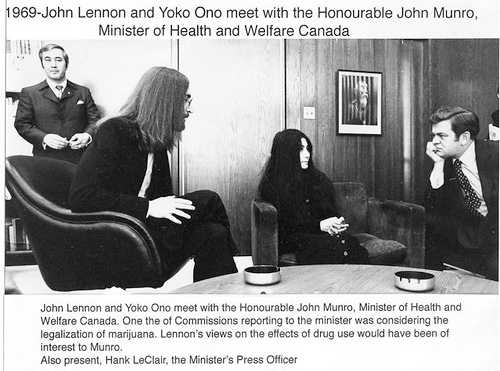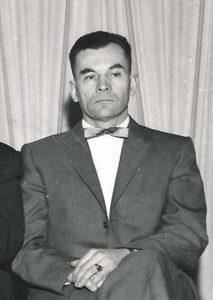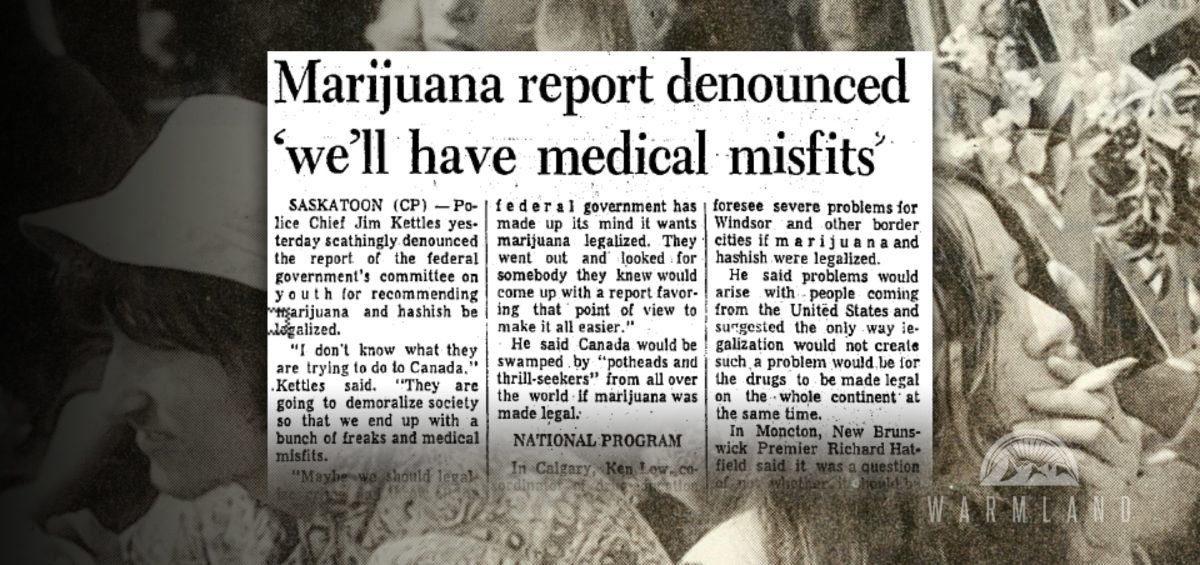
Photo courtesy of Hank LeClair
In 1971, the Trudeau government’s Committee on Youth issued “one of the most extraordinary documents ever issued through a Cabinet Department of a national state.” The Committee had been tasked two years earlier to “study the (a) ‘aspirations, attitudes and needs of youth’, and (b) ‘the government’s present role in this area.'” In its final report, they concluded that cannabis should be legalized, the voting age be lowered to 18, and that military cadet programs be defunded among other things.
Prime Minister Trudeau and his ministers had already been seen cavorting with the likes of John Lennon and Yoko Ono, and to many the Committee on Youth’s report was viewed as another example of the Liberal government’s plans to “demoralize society.” The backlash was swift and harsh, and came from across the country.
Marijuana report denounced – ‘we’ll have medical misfits’
Toronto Daily Star, August 28, 1971

“They are going to demoralize society so that we end up with a bunch of freaks and medical misfits.” – Saskatoon Police Chief Jim Kettles
SASKATOON (CP) – Police Chief Jim Kettles yesterday scathingly denounced the report of the federal government’s committee on youth for recommending marijuana and hashish be legalized.
“I don’t know what they are trying to do to Canada,” Kettles said. “They are going to demoralize society so that we end up with a bunch of freaks and medical misfits.
Maybe we should legalize crime and throw all the law books into the garbage and let everyone do exactly what they want to do.”
The committee on youth was appointed by the federal government to investigate the whole field of youth problems.
In its report, released Thursday, the committee said marijuana must be legalized to keep young people from losing respect for the law.
Not Impressed
The report also recommended that young people assist the government in making change, a critical examination of university education, a special government agency to help young people find employment, an end to military programs at colleges and full legal rights for 18-year-olds across Canada.
In Victoria yesterday, Premier W. A. C. Bennett of British Columbia was not too impressed with the report.
“That committee is part of the problem, not part of the solution,” he said.
Ken Kiernan, British Columbia’s minister of recreation and conservation, said the legalization of marijuana and hashish would be a tragic mistake.
“It appears we are just accepting the drug problem and not doing anything about it.”
In Vancouver, Mayor Tom Campbell said: “I think the federal government has made up its mind it wants marijuana legalized. They went out and looked for somebody they knew would come up with a report favoring that point of view to make it all easier.”
He said Canada would be swamped by “potheads and thrill-seekers” from all over the world if marijuana was made legal.
National Program
In Calgary, Ken Low, coordinator of drug education for the Calgary Public School Board, said marijuana “should not be legalized until people are adequately prepared to handle it.”
A national drug education program should be first undertaken, he said.
Alberta Attorney-General Edgar Gerhart said the committee does not have the background or the study to make the recommendation.”
The LeDain commission on the non-medical use of drugs would be more influential, he said, “and I’d prefer to wait for the recommendations of that commission before making a final decision on the matter.”
In Regina, Saskatchewan Attorney-General Roy Romanow said he was neutral about whether the sale of marijuana and hashish should be made legal.
“I don’t have strong feelings against legalization. I think the evidence isn’t really in yet.”
In Windsor, Mayor Frank Wansbrough said he could foresee severe problems for Windsor and other border cities if marijuana and hashish were legalized.
He said problems would arise with people coming from the United States and suggested the only way legalization would not create such a problem would be for the drugs to be made legal on the whole continent at the same time.
In Moncton, New Brunswick Premier Richard Hatfield said it was a question of not whether it should be legalized, but whether it should be used at all.
Hatfield said millions have used marijuana and, through their experience, “have declared it to be safe. This doesn’t convince me.”
More Research
In Charlottetown, Justice Minister Gordon Bennett of Prince Edward Island said: “We feel there should be a longer period of research before there is any such liberalization of the laws.
“Not enough information is available on the long-term effects of using marijuana.”
In Ottawa, the army, navy and air cadet leagues protested to Prime Minister Pierre Trudeau about the report’s recommendation that federal government support of cadet programs be discontinued.
“We strongly urge the federal government to continue to provide encouragement and support for these proven and highly valuable youth training programs,” representatives of the leagues said.
—
Featured image background photo by Paul Townsend.



